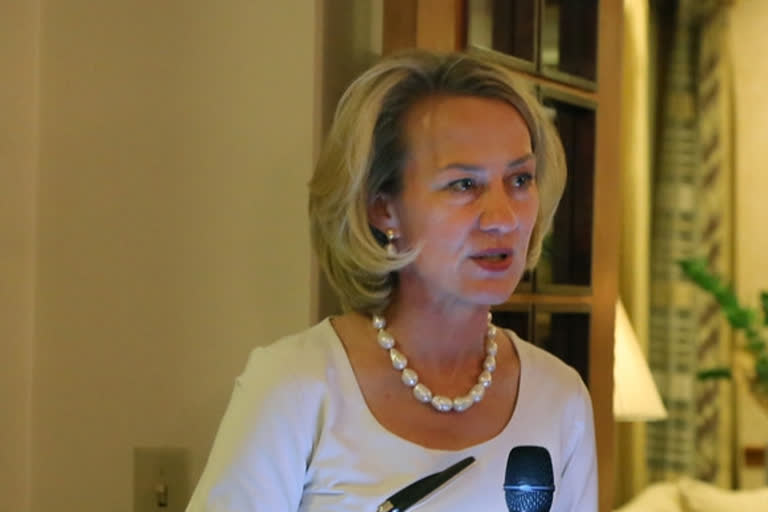Washington:The Trump administration is pressing Islamabad to take 'credible steps' to dismantle the terror groups operating from its soil, a top US diplomat has said, describing Islamabad's recent counter-terrorism mesaures like the prosecution and conviction of JuD chief Hafiz Saeed as important but not irreversible.
Speaking at an Atlantic Council-organised virtual discussion, Alice Wells, the outgoing Principal Deputy Assistant Secretary of State for South and Central Asian Affairs, also said the US encourages practical steps that India and Pakistan can take to reduce bilateral tensions.
She said the recent counter-terrorism steps being undertaken by Pakistan are important but not irreversible.
"I don't turn these steps irreversible, but they're important steps. Whether it's the prosecution and conviction of (JuD chief) Hafiz Saeed, the seizure of assets, certainly what we've seen on the documentation, better documentation of the economy and we need to keep that focus and work with our international partners, Wells said at the session held by the Washington DC-based think tank on Wednesday.
Participating in the discussion with Richard Verma, the former US Ambassador to India, Wells also said that the Trump administration continues to encourage practical steps for India and Pakistan to reduce tensions.
"We certainly support practical steps that India and Pakistan can take to reduce tensions such as restoring the 2003 line of control ceasefire, while continuing of course to press Pakistan to take credible steps to dismantle terrorist groups," she said.
The Indian government led by late Prime Minister Atal Bihari Vajpayee entered into a border ceasefire agreement with Pakistan along the LoC in Jammu and Kashmir on November 26, 2003.
Read more:Pak to resume limited domestic flight operations
"The Indo-Pak hyphenation is now found only in history books," she said.
Noting that the US considers Pakistan, a nuclear-armed country of 200 million population, as an important partner, she said that the Trump administration is not blind to the cross-cutting issue of terrorism.
"The administration has a very strong stance on terrorism. It's principled approach towards combating non-state actors and the presence of non-state actors has also been a boon in our broader global engagement and certainly in our engagement with India," she said.
The US has continuously asked Pakistan to end its support and haven provided to all terrorist groups operating on its soil, whose only goal is to sow chaos, violence, and terror in the region, to terrorist safe havens inside the country.
